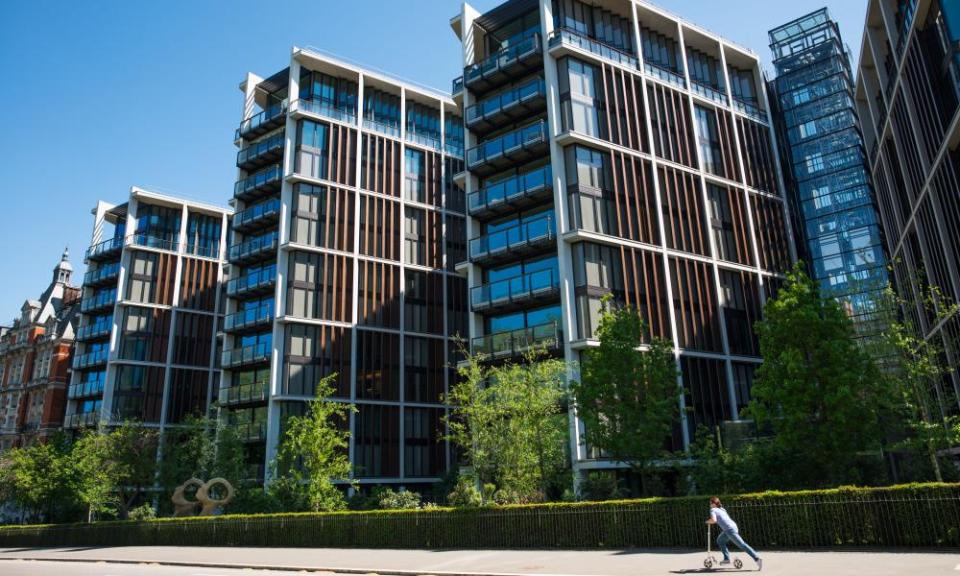My plans to tax wealth as well as income would create a more equal society

In 1872, Victoria Woodhull, the first woman to run to become president of the United States, argued: “it is not great wealth in a few individuals that proves a country is prosperous, but great general wealth evenly distributed among the people … it is the struggling masses who are the foundation [of this country]; and if the foundation be rotten or insecure, the rest of the structure must eventually crumble.” More than 150 years later, economic inequality is yet again one of the biggest challenges we face.
Something is seriously wrong with our economy when 90% of FTSE 100 bosses are paid at least 100 times more than the national living wage. When the ONS finds the average income for the richest is rising while the average income for the lowest paid is falling. We should be ashamed that 70% of children in poverty are in working households.
The levels of wealth inequality in the UK are even worse. The wealthiest 10% of households own more than 900 times the wealth of the poorest 10%, and five times more than the entire bottom half of all households. Regional gaps in wealth have been widening, with the average household in the south-east owning more than twice the wealth of the average household in the north-east. And we know that this inequality only gets wider: wealth generates more wealth, and earnings can never keep up. This is both a tragedy and an injustice. Inequality on this scale harms us all and denies opportunities to so many. It means that your life chances are determined by what your parents earn and where they work.
Making our country more equal and more just is one of the guiding reasons I am standing to lead the Labour party. I plan to rewire the economy so that people who work hard and contribute to our society aren’t stuck in insecure jobs on low pay. This would mean that most people have some money in the bank in case something goes wrong, instead of corporations sitting on huge piles of cash. I want to build a country where everyone has a stake and everyone gets a fair reward for their contribution, and where wealth and power are shared fairly.
One of the greatest achievements of the last Labour government was introducing the minimum wage: a commitment that sought to lift people out of poverty, and make sure work paid. Policies such as child tax credits made a real difference to working families. But to deal with the structural and entrenched inequality in the UK we need to go further. We can’t simply continue to squeeze income at the top, just to give a little bit more to people at the bottom. This only papers over the cracks. We need bold action to close the gap between the richest and the rest of us.
Related: IMF boss says raise taxes on the rich to tackle inequality
A fair system must tackle extreme wealth inequality. There can be no more excuses – and we should never pretend that greater fairness and equality does not mean those at the top losing out. They will. But fairness must be defined by the actions of all of us, not by living in fear of the wealthiest storming out. Under my leadership, Labour would build on our commitments of the past few years and put forward a bold programme of wealth redistribution – and creation – that does more to tackle the structural inequalities we face. This means taxing wealth at the same rates as income and making sure gains from land, shares and property are properly and fairly taxed. This isn’t about penalising people for the rewards of hard work, or taxing aspiration, but recognising that high earners are increasingly transferring income to wealth, avoiding taxes that would otherwise be due. And that so much of the wealth held in this country today is not earned, but gifted, whether through inheritance, house price rises or playing the market.
A fair system will protect and strengthen the role of trade unions as engines of equality. We need it to be easier for unions to access workplaces and recruit members, we need to lower the thresholds for union recognitions and we need to make it easier for workers to learn that they can join a union.
The revenue generated from a fairer system can be invested in skills and training opportunities for people to be able to take on and create the jobs of the future. It can be invested in our communities, our public services. It can be used to sustain all of these assets that we hold in common – people, natural resources, those things that can give us and our families a decent place to live, and a decent standard of living. It can mean we have a social care system that looks after all of us in our old age.
The Labour party I want to lead won’t shy away from making the wealthiest pay their fair share. It will be bold and ambitious about taxation, using it to build a greener and more just society. It won’t just rely on one-off transfers, but will relay the foundations of our economy so that fairness and equality are at the heart of our society.
• Lisa Nandy MP is a Labour leadership candidate

 Yahoo News
Yahoo News 